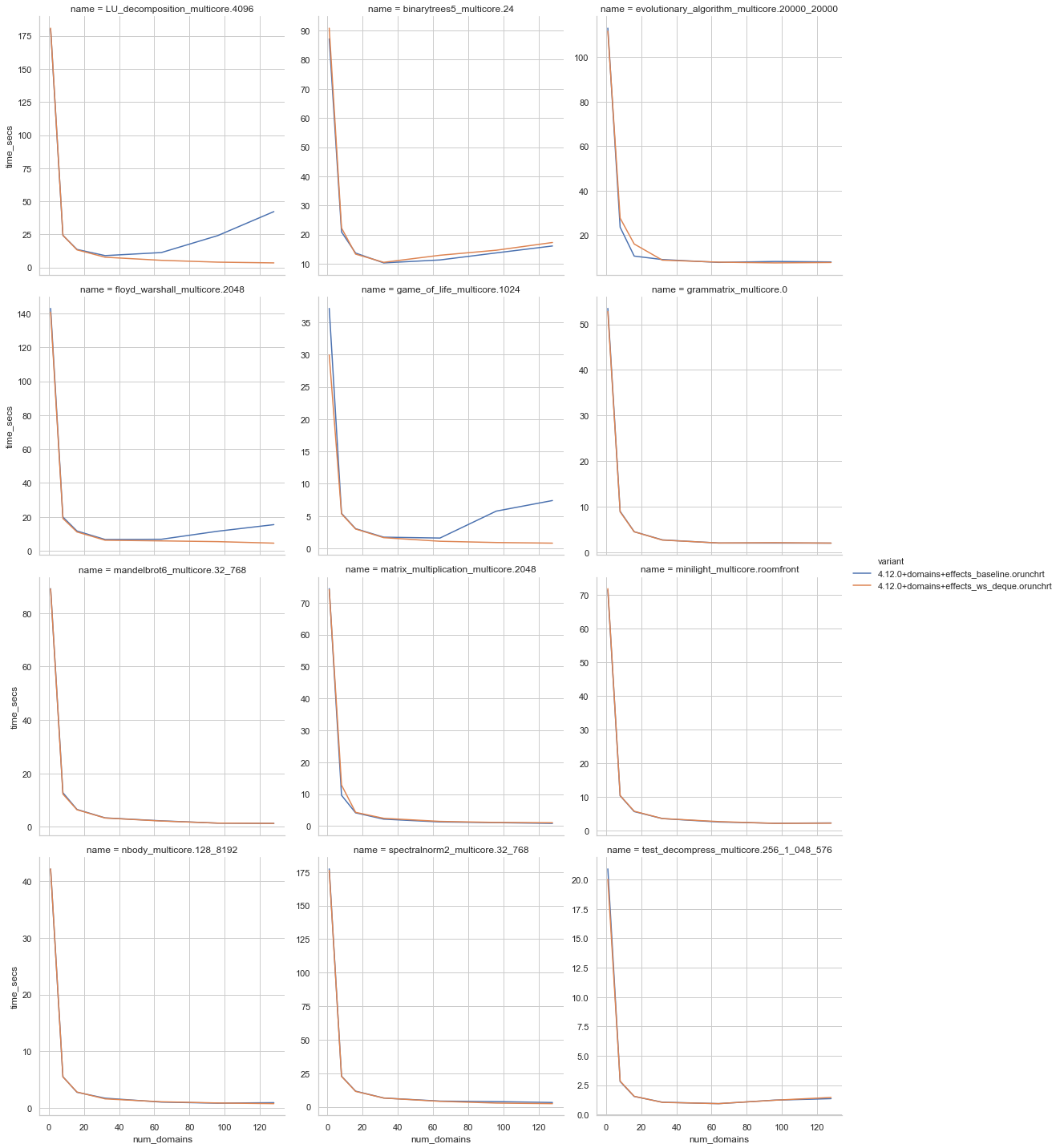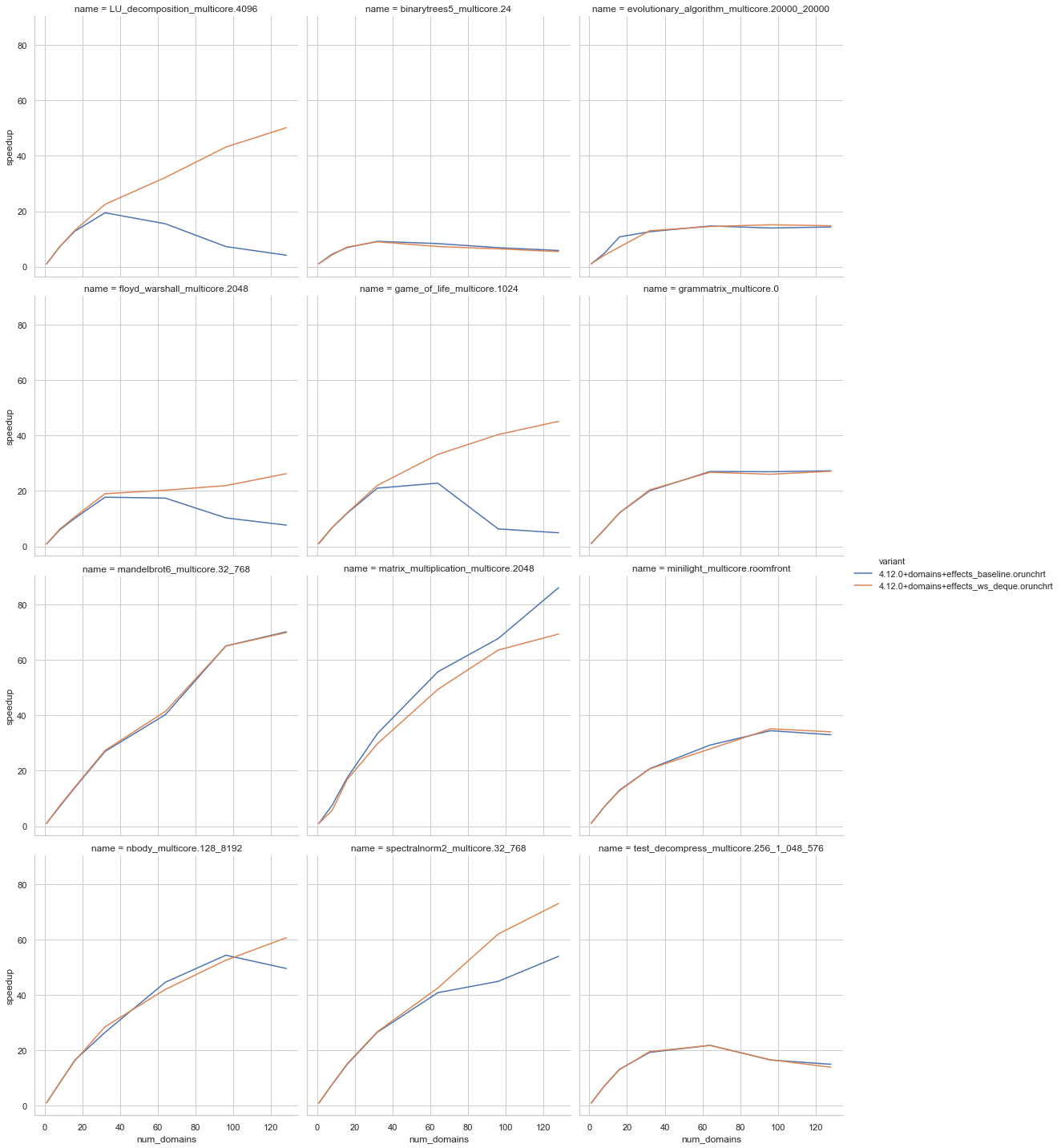-
Notifications
You must be signed in to change notification settings - Fork 30
New issue
Have a question about this project? Sign up for a free GitHub account to open an issue and contact its maintainers and the community.
By clicking “Sign up for GitHub”, you agree to our terms of service and privacy statement. We’ll occasionally send you account related emails.
Already on GitHub? Sign in to your account
Task stealing with CL deques #29
Conversation
ed28306
to
9f1912f
Compare
|
(rebased to pick up #30) |
|
I had a think about formalizing how multi_channel is turning a non blocking structure into a blocking one. If Thread A is enqueuing data and Thread B is dequeuing then Each of A1, A2, B1, B2, B3 are ordered in the sense that completion is either Ax < By or Bx < Ay. |
Just to connect various folks who might be interested in this, @fpottier and his students were looking at instances where Multicore OCaml explicitly takes advantage of data racy behaviours for improving performance. This looks like one. But @ctk21 mentioned that we need acquire release atomics which the OCaml memory model does not support (yet). @stedolan mentioned that while acquire load fits nicely into the model, store-release does not. |
There was a problem hiding this comment.
Choose a reason for hiding this comment
The reason will be displayed to describe this comment to others. Learn more.
This PR is very intricate :-). I've only managed to go through ws_dequeue.ml, and that too not entirely. I'll continue with the rest of the PR next week.
| } | ||
|
|
||
| let create () = { | ||
| top = Atomic.make 1; |
There was a problem hiding this comment.
Choose a reason for hiding this comment
The reason will be displayed to describe this comment to others. Learn more.
Why are these 1 and not 0?
|
Can you merge with the master again? The diff includes changes already included in master, and it makes it hard to read. See https://github.com/ocaml-multicore/domainslib/pull/29/files#diff-1a51aea47d0ef65c5073e293d19298451614febc83360af128ded914dbb6599bL39 |
structure with blocking
…ceived in check_waiters
…ght bits of the dls lookups; fix multi channel array size config
…he array in steal for ws_deque
f5d95d2
to
2d61ed8
Compare
Rebased to master and pushed! |
To expand a bit. We can implement the CL deque using the In other parallel data structures, for example a SPSC ring buffer, using acquire-release can be important to get a really low overhead implementation. However there is a problem to solve which is if the OCaml multicore memory-model can be extended to accommodate acquire-release atomics. |
There was a problem hiding this comment.
Choose a reason for hiding this comment
The reason will be displayed to describe this comment to others. Learn more.
This is great work and the results are very exciting! The overall structure is convincing to me.
Just had a couple minor questions.









This PR is an implementation of Chase Lev deques organised for task stealing; as is traditional in Cilk, Concurrent bags, etc.
The basic idea is:
pushwithout synchronous operations andpopwill not need to synchronize with other domains unless there is only 1 element in the deque.stealtasks from randomly chosen deques belonging to other domains.recv_block_spins.Early benchmarking results (detuned Zen2 with sandmark


fb2a38) are encouraging:I wouldn't say the implementation is fully finished:
Atomicindirection.Some/Nonereturn from the deque to use exceptions.LU_decompositionandgame_of_lifestand out), it would be good to understand thematrix_multiplicationregression and take a look at thebinarytrees5where the deques might be a bit slower.The CL deque implementation was built on the queue in lockfree but I would recommend looking at the C code in Correct and efficient work-stealing for weak memory models